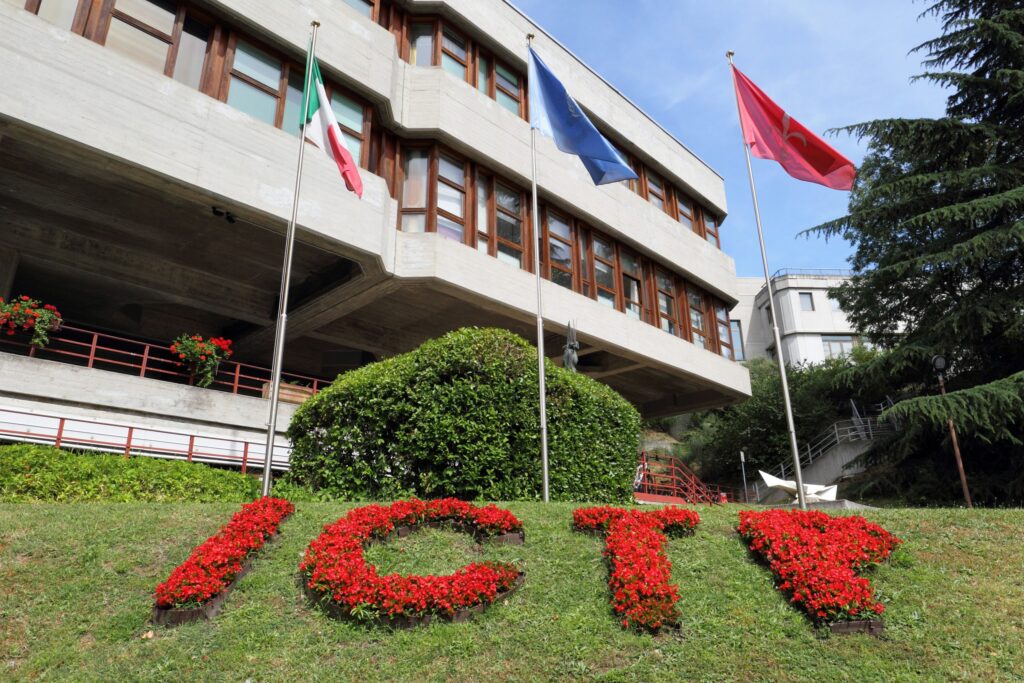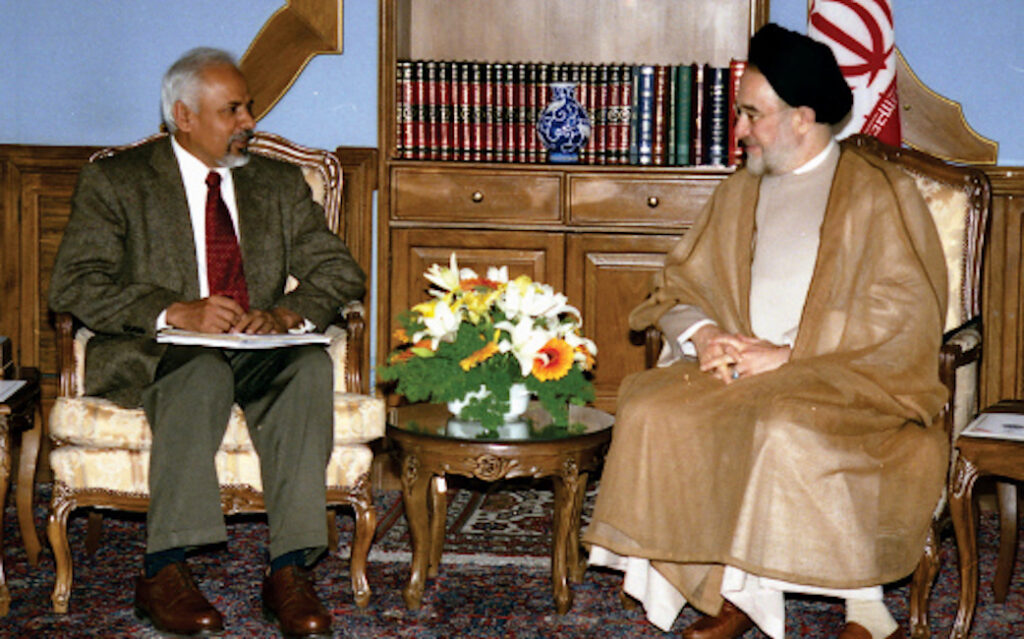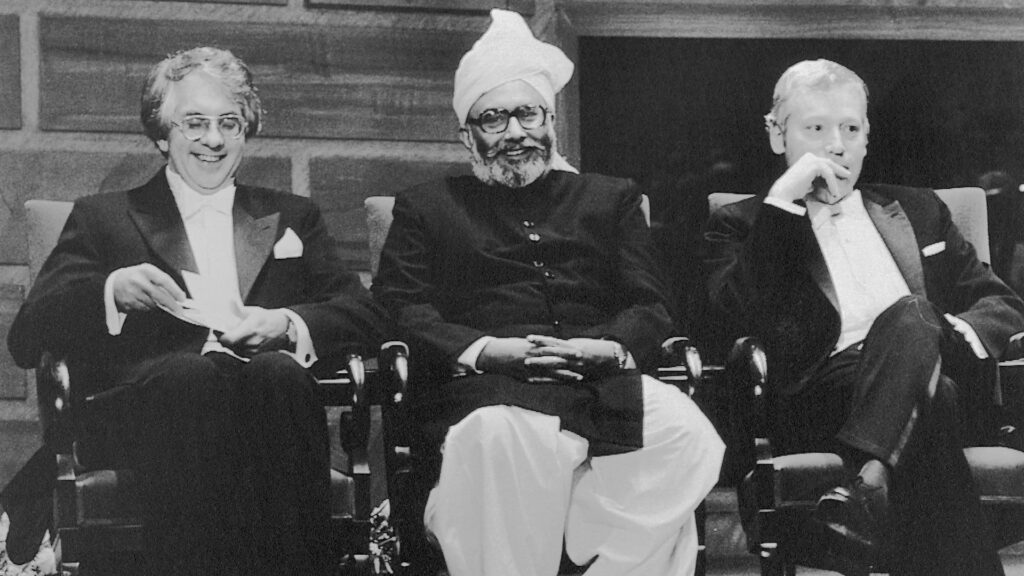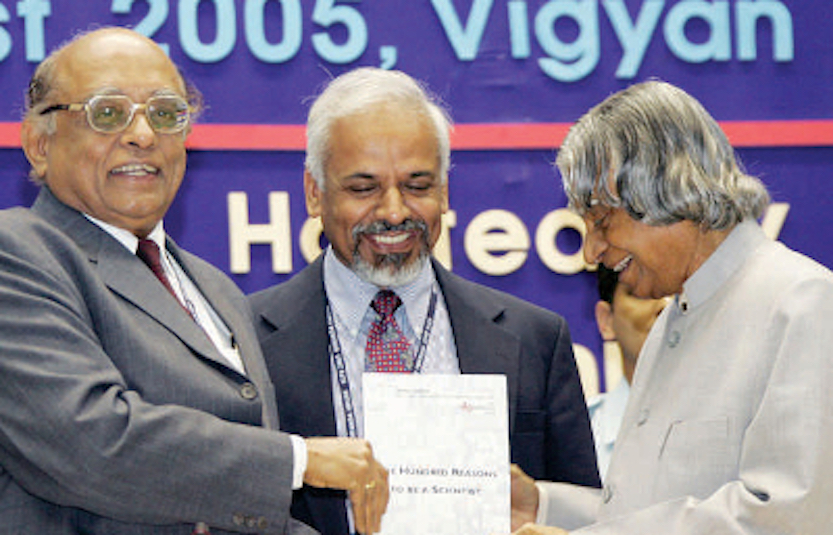
The difference between dogma, whether religious or philosophical, and scientific truth is this. Dogma lays down that, whatever anyone else may say, such-and-such facts are so, that such-and-such explanations are eternally and completely true—an attitude which has the implication that further investigation is accordingly either unnecessary or impious. Science, however, on the basis of its fruitful experience, asserts with confidence that a priori reasoning is inadequate to arrive at truth, that truth is never complete and explanation never fully or eternally valid. On the other hand, the scientific method, within the very wide limits of its applicability, leads steadily to more truth, both in the quantitative sense of a greater amount of truth as well as in the qualitative one of a fuller, more accurate and more complete truth.
Sir Julian Huxley FRS (1887–1976), the first Director General of UNESCO
I had accepted Huxley’s views when I was quite young and appreciated that science is an integral part of human culture. Having visited ICTP twice before working there, I knew that it was part of UNESCO and had played, under Abdus Salam’s leadership, an important role in promoting scientific culture. I knew very little of Salam himself, once having seen him at Yale when he was invited as a Trumbull lecturer, and once outside his office at ICTP, by which time he was already quite unwell. When the directorship of ICTP was offered to me on the phone one evening in 2002 (without ever having interviewed for it), I asked for one week to respond, and immediately sought advice from some 40 or so scientific colleagues who knew both me and ICTP. The questions I asked them were: Is the job worth doing? Am I the right person to do it? I was even worried that ICTP may have outlived its usefulness. Surprisingly, most people said that it was an extremely important job and that ICTP’s relevance had, if anything, increased in the world at the time. To a person, they advised me to accept the position. Three of them travelled to my office just to convince me to do it. I was especially humbled by what one of the respondents said: “ICTP has lost its moral compass in recent years, and it needs someone like you there.” I accepted the position with full awareness that it would disrupt my family life for a period of time, and that I may not live up to the expectations people had of me. I took my job seriously enough, enjoyed it well enough, and believe to have made enough of a difference, that the governing bodies of ICTP did not believe me for quite some time when I stated my desire to leave. I finally left in March 2010. The notes here summarize my quick thoughts on those years. I have tried to be as objective as possible though I have interjected a fair bit of myself to keep the account authentic.
One time during my directorship of ICTP, I was invited to the Royal Swedish Academy of Sciences to deliver a lecture as part of a one-day meeting. My talk followed a few others. I felt honoured when the Secretary General of the Academy started to introduce me but became concerned as the introduction continued. He said something like this: There are two kinds of science. One is motivated by outstanding discoveries typified by Nobel Prizes, etc. We have heard this morning a few talks on that kind of science. The other is one for which ICTP stands. You will now hear about the latter from its director. His remark suggested a belief that ICTP excluded first-rate science. I pointed out that I routinely spent a good part of my time at each meeting of ICTP’s Scientific Council reporting the latest scientific results, reminded him of Salam’s Nobel Prize, and said that ICTP subscribed to excellence and diversity at one and the same time. ICTP would be brainless without embracing excellence as its foundation, while it would be heartless without caring for diversity while pursuing excellence. On hindsight, I think that he was slightly careless in articulating what he had in mind, and I was hypersensitive. In any case, I firmly believe in the motto that is reflected by the title of this article. If ICTP cared only for excellence, it would be hard to keep up with IHES, IAS and other such places of higher learning elsewhere in the world, while it would become an inconsequential institution if its only focus was diversity. When I made this remark some years later in another public meeting, I was admonished by being told that “diversity is excellence”. I had to defend myself that these two traits are by no means mutually exclusive but are not necessarily the same in physical sciences and mathematics.
ICTP also had the underlying agenda of fostering scientific collaborations among various nations to address common problems by building constructive international partnerships. It has supported the beliefs of UNESCO, which is one of ICTP’s parent organizations, “in equal educational opportunities for all, in the unrestricted pursuit of objective truth, and in the free exchange of ideas and knowledge”, in particular, “in maintaining, increasing and diffusing knowledge,” and in building “cooperation among the nations in all branches of intellectual activity, including the international exchange of persons active in the fields of … science …”. It is also the case that, because UNESCO simultaneously embraces Culture and Science in its charter, ICTP occasionally got drawn into matters outside Science, but these excursions have not been central to its operations. My take is that ICTP always believed that nothing notable happens without serious substance behind its pursuits: to do anything meaningful in a partnership, each member of the partnership ought to have done something meaningful oneself, at some point, which is the only way to understand quality in science. A collection of superficial people does not produce a profound result.
This was my frame of reference when I took up the position; this was the frame of reference I maintained more or less at all times when I was at ICTP (also later). Many people supported it; even those few who may have thought otherwise were circumspect in voicing their thoughts. I encouraged all programs at ICTP to enable the participants to do something at the frontiers. There were many opportunities at ICTP for work on both fundamental and applied sciences, and the institution had built up a huge network of scientists whose help it took in assessing the suitability of new members.

The Centre came into being in 1964 (though discussions for its creation had begun several years earlier) and quickly enabled scientists from both sides of the Iron Curtain to spend some time together, just as it enabled many scientists from the less developed countries to work side by side with scientists from advanced countries. In Central Asian countries right after the collapse of the Soviet Union, in China when it was building itself after the Cultural Revolution, and during the years of US military engagement in the Middle East, for instance, ICTP played major roles in keeping scientific activities alive—and occasionally flourishing—in those countries. Its support for other scientific institutions in Trieste, and even in Italy at large, has been remarkable. For these reasons, its prestige and recognition for many years has been like that of no other institution in Europe and much of the rest of the world. Many diplomats and politicians have visited the Centre to express their solidarity with its work. During my tenure as its director, about 6000 scientists from all over the world came to ICTP, about half from advanced countries, and the other half from developing countries. The visitors stayed from a few days to a few weeks, up to a year on rare occasions, participated in courses and advanced seminars, and did actual collaborative research. Many of them were repeat visitors, and 23 percent were women. Pretty much every decent scientist from developing countries had been a visitor at one time or another, and many owe their scientific careers to it. As a rule, visitors were not allowed to remain long enough at ICTP to be able to migrate out of his or her own country. Keeping scientists active and strong in their own countries was the main motivator. A number of scientific collaborations have emerged through contacts developed at ICTP. The permanent scientists at ICTP do their own work at a high level, while organizing scientific activities in collaboration with others outside ICTP.
The best-known scientific work done at ICTP has been the so-called electroweak theory, for which Salam shared the 1979 Nobel Prize with Sheldon Glashow and Steven Weinberg. To put this subject in perspective, it is important to point out that physicists try to understand the unifying principles behind the great diversity of the contents of the universe. One might say that the process of unification of the fundamental forces began by Newton in the 17th century, when he brilliantly identified terrestrial and celestial gravitation to be one and the same force (that is, the force that makes the apple fall off the tree is the same force that keeps the planets in their orbits). Later, around 1830, Ampere and Faraday unified electricity and magnetism, and in 1878 Maxwell unified electromagnetism with the entire radiation spectrum. By extraordinary insights of giants like these, it was believed in the early 1970s that there were four fundamental forces: gravity (for which we all have a feel), electromagnetic (with which we live most of the time these days), weak nuclear, and strong nuclear (both of which we understand only intellectually). By its name, the weak nuclear force is weak compared to the electromagnetic force, or the strong force that holds together the constituents of the nucleus. And it acts at very short distances of the order of 10^{-17} cm. Most subatomic particles are unstable and decay through a process known as beta decay. This is the result of the weak force. It is the force responsible for the transmutation of a proton into a neutron, and makes fusion in stars possible (for example). Glashow, Salam and Weinberg showed that electromagnetic and weak nuclear forces are unified and are different manifestations of a single interaction, called the electroweak interaction—a phrase that Salam coined, as far as I know. This unification forms an important part of the so-called standard model of particle physics. Salam was consumed almost from the late 1950s by thoughts of unification of forces in Physics.

The main point of recounting this episode is that it gave me an unusual window into Salam’s character of which I would otherwise have remained unaware and provided the context for remarks by various visitors who would privately remark on him. I had tremendous respect for Salam and so never stopped people from telling me about his greatness. (The exception was when someone would say that their requests would have been approved if he had been in charge, when I would cut short such self-serving remarks.) Salam was a complex person driven by lofty goals and personal ambitions. He generated many personal conflicts but rose above that din to create not only ICTP but also other wonderful institutions in Trieste and elsewhere. He lost no occasion to advance his own geopolitical agenda and wore both his religion and country’s politics on his sleeve, thus becoming a lightning rod for bigots—he was excommunicated, became persona non grata in his own country, and was not allowed to go on Haj pilgrimage—but always advocated international science in grand terms. He did not exercise prudence on a number of occasions, including Pakistan’s quest for nuclear weapons, but was never petty in his support of deserving scientists from different parts of the world. A mathematics friend of mine once told me that, to assess a person’s greatness, one should not sum up all her positives and negatives—for most people will amount to little by that criterion—but to ignore all the negatives and add up the positives. By this measure, Salam was a great person with a grand vision, and deserves to be remembered with dignity.
A few words about ICTP’s effectiveness. My experience is that ICTP has been most effective in those countries in which scientific traditions were already prevalent and its chosen scholars were subsequently supported on a long-term basis by their own countries. Otherwise, the effort was somewhat Sisyphean. But the effort needed to be made constantly—and with deep optimism. While Salam’s original vision needs to be periodically updated and modified, the underlying principle seems relevant at all times. The only way to function is to act simultaneously with generosity and demands for rigour without exception. The work that I myself put into ICTP was not always rewarded, so efficiency was not the principal watchword, but there was no choice but to keep doing the hard work. An institution like ICTP is difficult to create in the present world and so it is especially precious for that reason. ICTP is most useful when it focuses on quality and rigour, with little bureaucracy and great nimbleness, building a true partnership in scientific work without acting “holier than thou”. I used to be asked, sometimes to my irritation, the following question: Why do developing countries need centres on fundamental science when their real needs are clean drinking water, better public health, literacy and freedom from famine, political turmoil and abuse of human rights? I gave two answers. First, some people in any country should be able to do basic research in whatever area in which they have the aptitude: Who am I to say that a physicist from Chad cannot work on string theory just because she is not in Princeton? Second, for applied science to work well in a developing country, one needs a certain amount of scientific capacity to develop in that country. But what does scientific capacity mean? I have mentioned my thinking already but let me restate it for emphasis: it means essentially that one must develop competence in rigorous inquiry, technical prowess, problem-solving skills, and personal confidence to deal with new problems as they arise. There is no better way to acquire these characteristics than through rigorous training in some aspect of science and engineering. Our goal must then be to help create and sustain educated minds, not people entrenched in particular specialities. Many small centres indeed do generate local excellence adequately but, aside from falling into the trap of some esoteric lines of inquiry, do not know how to scale up their work to create larger impacts in their own countries. Sustained mentoring of an individual scientist from a developing country for some years (on the order of ten) is necessary, short of which little of importance emerges.

